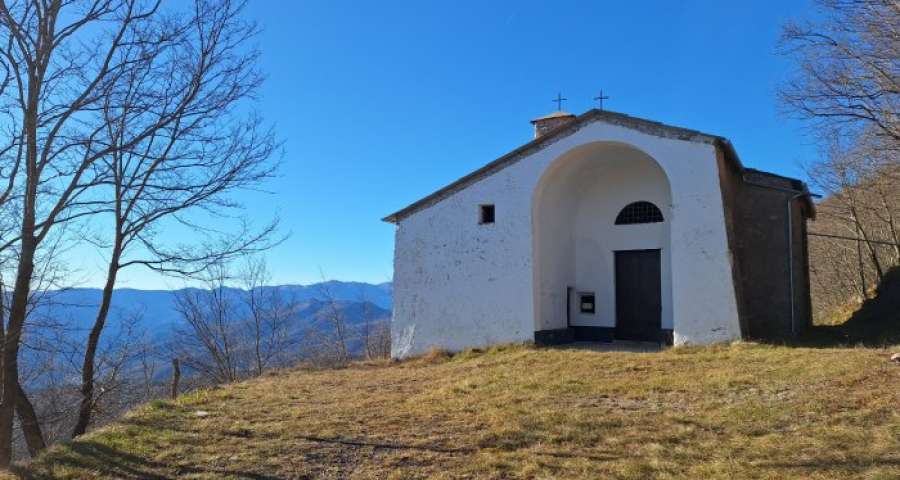Rebirth can be learned / 9 – Charismatic communities make sense as long as the gospel takes on a different tone and guise from the other ‘flowers’ in the garden of the Church and humanity
by Luigino Bruni
published in Città Nuova on 03/10/2024 – from the Città Nuova magazine, n. 5/2024
The biblical episode of the golden calf on the slopes of Mount Sinai also has something important to say to charismatic communities in the phase following the death of the founders. Its main message concerns the reduction of the complexity of the original charisma into something more manageable, simple and ordinary. The YHWH-God who had revealed himself to Moses could not be seen, could not be touched, he was not there to satisfy the senses, only the prophets could hear him: ‘there was only a voicee’ (Deut 4:12). All other peoples had simple gods, statues that everyone saw and understood. The God of Israel was different, abstract, the highest: the people could not stay at that height and made the calf, a visible and simple god, a fertility god (a bull), so as to become a people like any other. Moses was away, and in his absence the people reduced YHWH to a calf.
In charismatic and ideal communities, after the founder - ‘Moses’ - dies or is away, there is a strong fascination to re-dimension and normalise the first promise, to transform the original charisma into something understandable by all and by the community itself. In fact, a charismatic movement is born around a true spiritual and social innovation. This novelty is something obvious to the founder and the first generation, no one questions it: the absolute novelty inherent in it is what attracts and converts people. And so, when a charisma arrives, along with it comes criticism, whether explicit or implicit, deriving from many pre-existing religious practices and ideas, which the new movement feels it must change and abandon, as part of its prophetic mission.
The next generation, however, always experiences great difficulty in keeping faith with that innovation, which starts looking difficult, distant, and too different from what everyone else is doing. And so at this stage a typical tendency-temptation emerges: to return to those practices, experiences, traditional activities that the charismatic community wanted to overcome at the beginning. One struggles to remain in the novelty of the charisma, which now appears abstract, distant, impracticable because it is too elevated and demanding; and so instead of working to understand the reasons for the difficulties that have emerged in putting the charisma into practice, one gradually returns to those ancient forms that the charisma had intentionally wanted to overcome. The charismatic novelties seem infeasible, naive, childish, and what the Church and society had been doing for centuries will be imitated again, which, in turn appear to be novelties to the members of the community, and are even presented as the therapy to overcome the crisis. Someone starts saying: The gospel is enough - why complicate it with all the complexity of a complicated spirituality?!’A thesis that sounds perfect, but which would lead to the end of charismatic communities that make sense as long as the gospel takes on a different tone and guise from the other ‘flowers’ in the garden of the Church and humanity.
But that's not all. To understand this, let us go back to the biblical episode of the calf. There is a very important detail there, contained in the name that the Israelites give to the calf: the name is YHWH, that is, the special identity of their different God: ‘Aaron (...) built an altar before it. And Aaron made a proclamation and said, »Tomorrow shall be a feast to the Lord«’ (i.e. YHWH; Exodus 32:4-5). What does this mean? The name in the Bible tells the profound nature of a reality. To call the golden calf by the name of YHWH means to replace God, to substitute him with a god that is simpler because it is trivial. As long as we are clear about the distinction between God and the golden calf, if we start worshipping the idol out of frailty, we can always convert and return home. But starting from the day we call the calf by the name of YHWH, we will no longer return home because there is no home to return to: the cathedral has now become public housing. The most serious damage is therefore to erase the distance between charisma and its surrogates, until they coincide.
Generally, these transformations are loved and applauded by communities in post-founder times, because in a phase that is almost always one of disorientation, fatigue, pessimism, declining desire, spiritual depression and collective sloth, any new activity is seen as preferable to immobility - and it is. The future of charismatic movements, however, lies in being able to prevent community praxis from becoming something very, very different from the specific praxis of its charisma, because if it does, it is no longer able to attract vocations and young people, and will perish. Everything evolves, even in the life of the spirit, but not all evolutions are capable of a good future. Becoming aware of this is already the beginning of the cure.
Credits foto: © Jed Villejo su Unsplash













